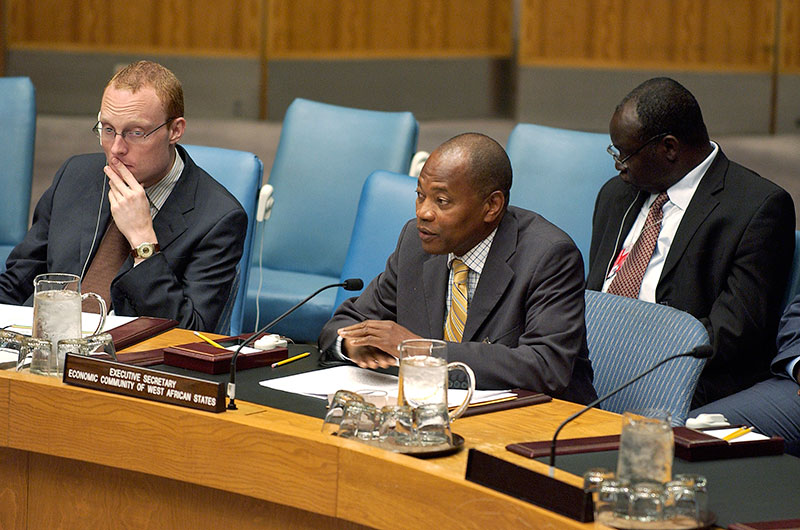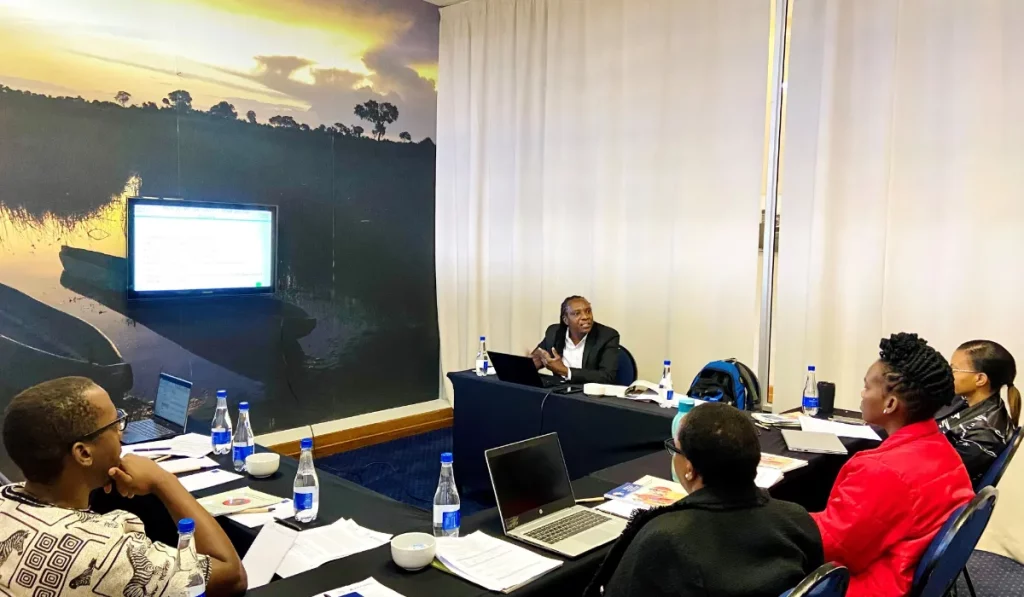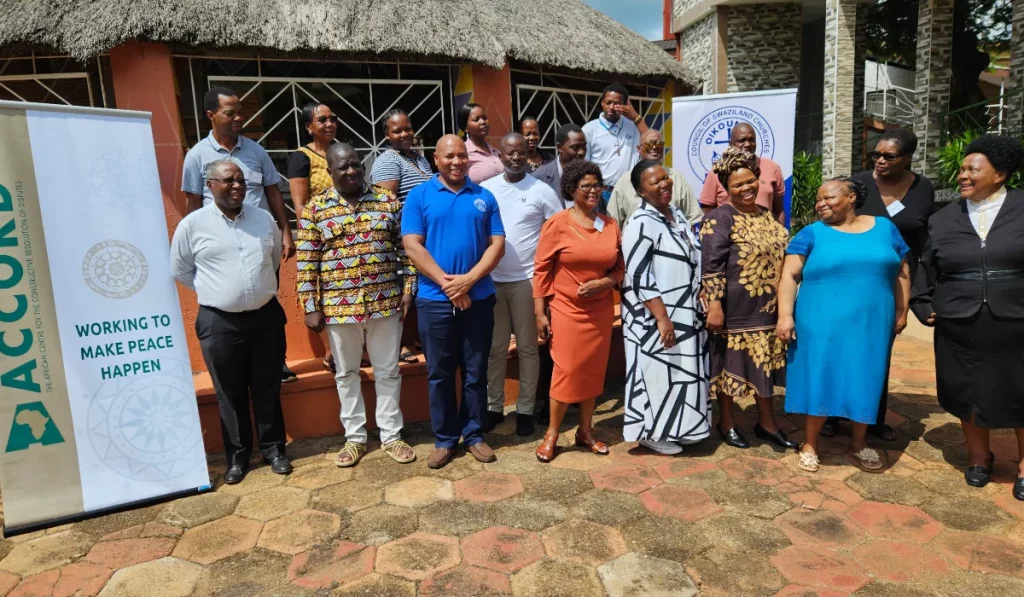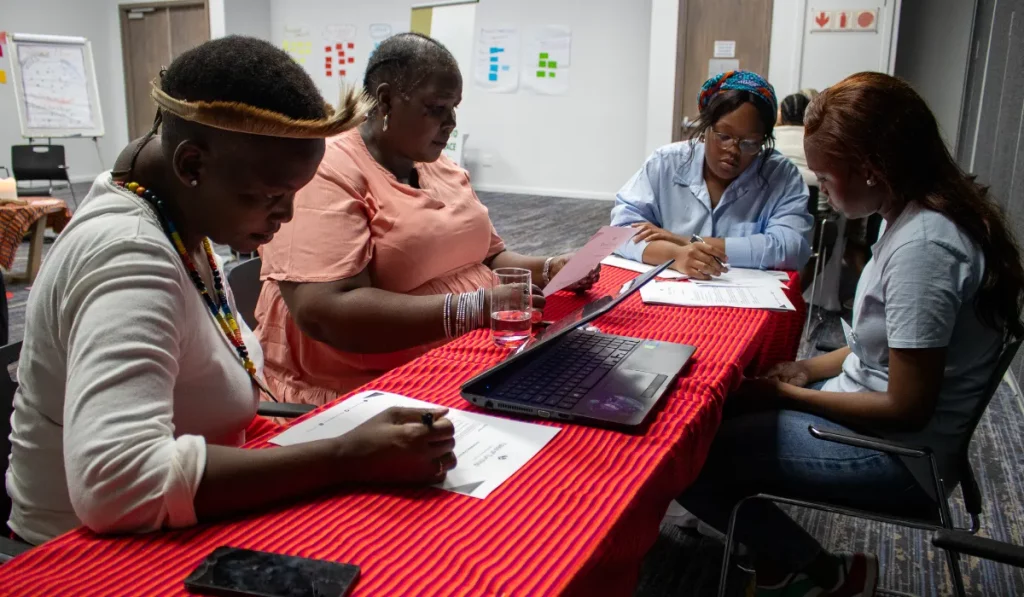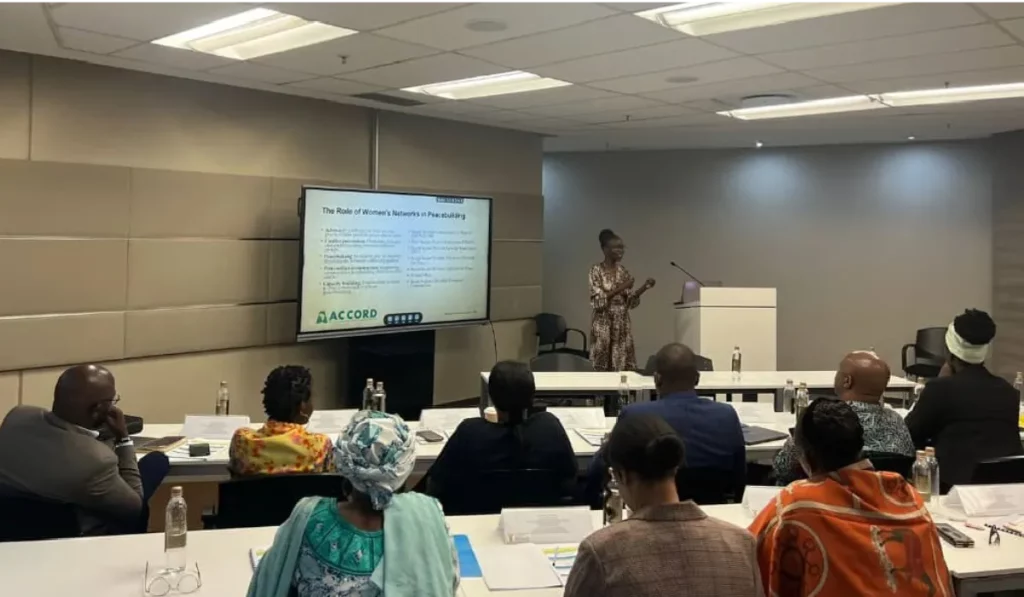The Training for Peace in Africa (TfP) Programme at ACCORD has participated in the TfP Annual General Meeting (AGM) in Abuja. The AGM’s purpose is to highlight TfP’s main achievements and developments in 2013, and present its work plans for implementation in 2014. The meeting also allowed for the sharing of feedback amongst the TfP partners on issues relating to reporting and planning templates, management cycle timelines, curriculum development, applied research and enhanced collaboration.
The TfP AGM was organised by the Norwegian Institute of International Affairs (NUPI), from 26-28 March 2014 in Abuja, Nigeria. Member institutions from across the world were in attendance, including the Kofi Annan International Peacekeeping Training Centre (KAIPTC); Institute for Security Studies (ISS); the Norwegian National Police Directorate (POD); and the Norwegian Institute of International Affairs (NUPI) – along with representatives from the Norwegian Ministry of Foreign Affairs, which funds the TfP Programme. TfP/ACCORD was represented by Ms Seun Abiola – Peacekeeping Unit Coordinator.
As part of the TfP AGM, the TfP Partners had the opportunity to meet with key regional and national peacekeeping interlocutors in the form of the Economic Community of West African States (ECOWAS) and the Nigeria Police Service, in order to consolidate existing partnerships and confirm the 2014 initiatives the TfP Programme will be implementing in the areas of policy development, training and research. In particular, the TfP Programme plans to support the ECOWAS Standby Force (ESF) Civilian Planning Element (PLANELM) in achieving the 2015 target for operationalisation – as part the larger continental African Standby Force (ASF), which aims to have a Rapid Deployment Capability (RDC) in order to respond to crisis on the continent in a timely manner, learning lessons from the Rwandan Genocide 20 years ago this year.
The AGM meetings also provided an opportunity for the TfP Programme to meet with Professor Ibrahim Gambari, the previous Under-Secretary-General of the United Nations (USG) for the Department of Political Affairs (DPA) and newly a new member of the International Advisory Board (IAB) of the TfP Programme. Prof. Gambari related to the TfP Partners his views on the ASF Assessment he led in 2013 – the Assessment team had also included Dr. Cedric de Coning, Head of the Peace Operations Research Group at NUPI, and the Peacekeeping and Peacebuilding Units Advisor at ACCORD. The ASF Assessment Report highlights the need to focus further work on outstanding issues for the increased utility of the ASF as a tool for the African Peace and Security Architecture (APSA), and proffers key recommendations – including in relation to the incorporation of the “African Capacity for Immediate Response to Crises” (ACIRC,) established in 2013 in response to the need for the early operationalisation of the ASF Rapid Deployment Capability (RDC). The TfP Programme’s partner institutions will continue to support the implementation of recommendations for the Regional Economic Communities/Regional Mechanisms (RECs/RMs) Standby Forces as part of their 2014 workplans.
The TfP AGM and the additional meetings were opportunities for the programme to consult with stakeholders and partners on key strategic and operational needs of the African Union (AU), United Nations (UN), and the continent’s RECs/RMs in the deployment of peace operations in Africa. The continuous assessment of current trends and identified priorities of stakeholders will feed into the TfP Programme’s interventions to improve policy, operational guidance, integrated planning processes, and training curricula. This is in-line with the TfP Programme’s overall goal to contribute towards building sustainable African civilian and police capacity for multidimensional peace operations.
The Training for Peace Programme at ACCORD is an initiative funded by the Norwegian Ministry of Foreign Affairs.

